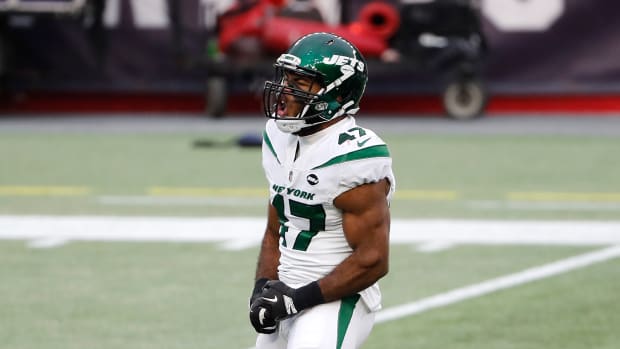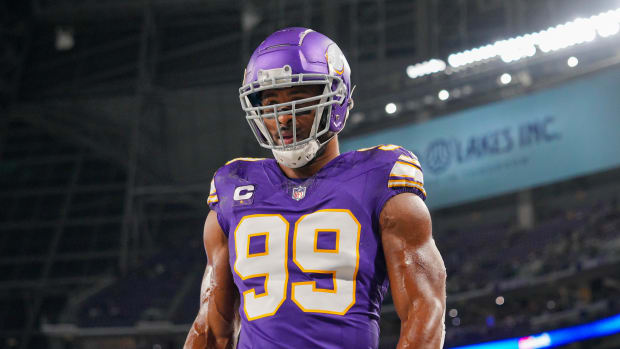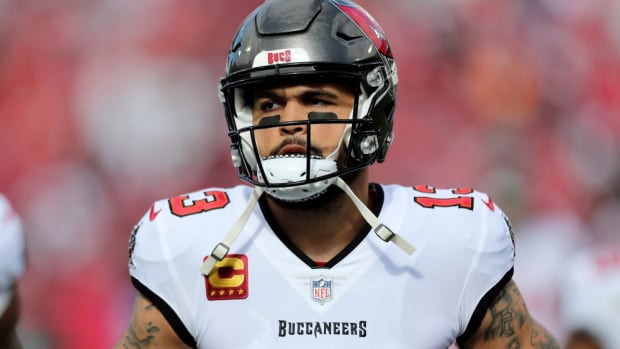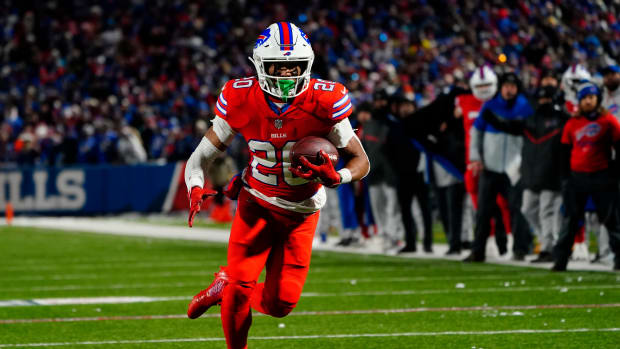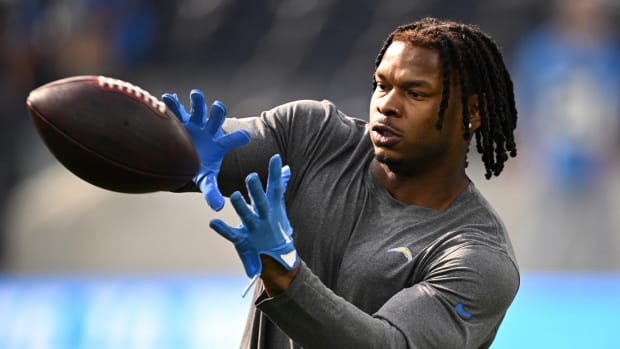Wes Welker's latest concussion puts NFL's head injury issue in crosshairs
On Saturday night, as the Broncos processed into the locker room after an 18-17 preseason loss to Houston, I overheard someone in the tunnel posing a question. Why, he asked, had Wes Welker not been wearing his concussion-proof helmet?
Unfortunately for Welker and the dozens of other players whose brains will rattle this season, such a helmet doesn’t exist. And unfortunately for our collective intelligence about brain trauma in sports, at least a portion of the football-watching population believes it does.
Tom Brady: 'Tough to see' ex-Patriot Wes Welker hurt again
A quick Twitter search reveals dozens of messages describing this mythical helmet. They’re referring, of course, to the Riddell 360 model Welker has sported since he returned from his second concussion last season. (In fact, he was wearing it Saturday.) The helmet boasts extra padding and is among the highest-rated models by a Virginia Tech-Wake Forest study ranking helmets in terms of reducing the risk of brain trauma, although a scientific debate persists as to whether a helmet can reduce that risk by any more than 20 percent. So yes, the helmet gives Welker’s brain a bit more cushion, but it’s far from concussion-proof, and the fact that anyone would think it might be is more than mildly terrifying.
On Saturday, somewhere between colliding with Texans safety D.J. Swearinger and then with the turf, Welker suffered his third concussion in 10 months. No helmet was going to prevent it, and after the game, the Broncos said what they needed to say: that Welker will go through the league-mandated concussion protocol, that he won’t come back until doctors deem him ready.
That’s the script, just as it was last November, just as it was again the following month.
MORE: Texans coach Bill O'Brien defends D.J. Swearinger after Welker hit
It’s impossible to definitively say that these hits will leave Welker with any lasting medical issues. Everyone responds to concussions differently, and every hit leaves its own impression. Fifteen years from now, Welker may be a happy father, tossing the football with his future kids, without a hint of a health issue. Or his brain might be fried. It’s hard to predict, and so I can’t sit here at my desk, having never played a snap of football or earned an M.D., and tell him he must retire. No one can make that decision but Welker.
I can, however, point out that retiring might not be the drastic, tragic next move that many paint it as.
2014 NFL division previews: Examining AFC East to NFC West
If Welker were to walk into the Broncos' facility this week and announce he’s done (he won’t), the football world would stop turning. Talking heads would spew commentary for days, if not weeks. The decision would be shocking and unexpected. It would be the crazy, out-of-left-field move.
But what if it weren’t?
In the aftermath of Welker’s latest concussion, the refrain was this: He will be back. But he’ll be better when he returns, with all the league’s boxes checked. He would never retire. He’s too tough to retire. This guy loves football. You couldn’t force him to retire. And this concussion, it’s not as bad as the last two, so everyone breathe easy.
I hate the way we talk about concussions. I hate that this concussion being “not as bad” makes it okay, even though much of the brain trauma that plagues football players is a result of repeated hits, many of them sub-concussive, over the course of seasons. I hate that being "tough" is the ultimate sign of a good player, that being cautious or forward-thinking takes a backseat. I hate that the words "concussion-proof helmet" have ever been uttered.
Peyton Manning responds with his arm -- and words -- vs. Texans
Last week, while working on a story completely unrelated to brain trauma, I spoke with several retired players who are now in their 60s and 70s. One stammered. His voice faltered. I knew he suffered from memory loss before he said so. I could tell it was painful for him to talk to me, to admit that his most lasting memories of his career are of nightlife, not games. Games are harder to recall.
Another player I spoke to was sharp, but he was worried. He asked me if I would let my future children play football, and before I could give him a definitive answer, he told me that if he could do it all over again, he’s pretty sure he might just become a musician instead. Every morning, he says, he wakes up and asks himself if he’s all there. He laughs, but it’s not that funny, because he worries that someday he might not be.
Winners and losers from the NFL preseason's pivotal Week 3
Welker will return from this latest concussion, perhaps by the Broncos’ opener on Sept. 7, perhaps a week later, or the week after that. But he will return, and he knows the risks. It’s his prerogative to keep playing, because he has all the information. But if he were to walk away, or if someone else goes through this and waves goodbye, it shouldn’t be crazy.
We need to change the way we talk about concussions, about toughness and love of the game, about prevention. The only way to wholly prevent concussions is to stop hitting, to stop playing – and the only way to regret playing is to get some distance from the game. It’s just a shame that by the time many men get that distance, they can’t quite remember how they got there.
































